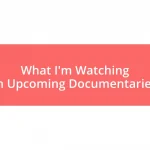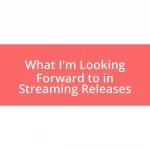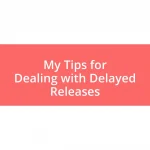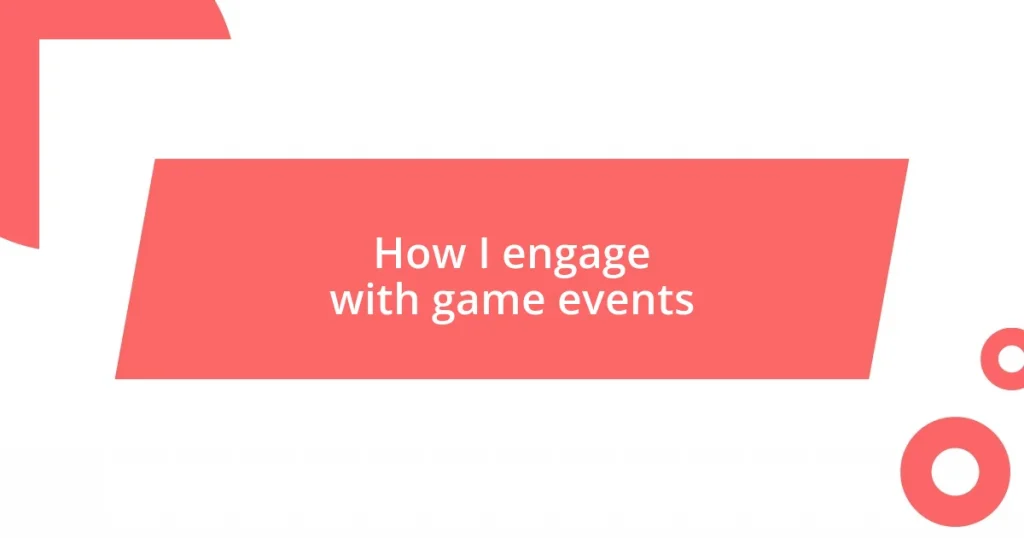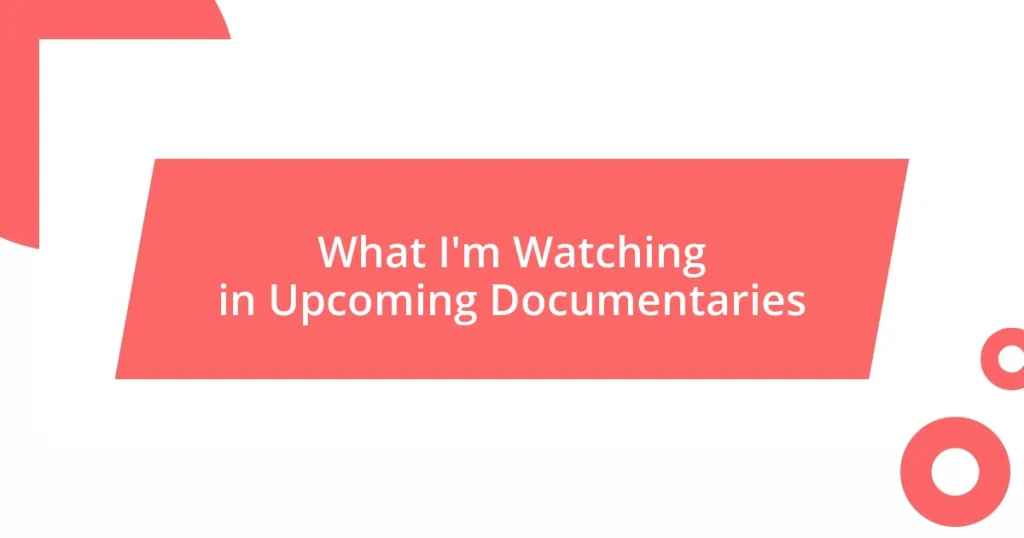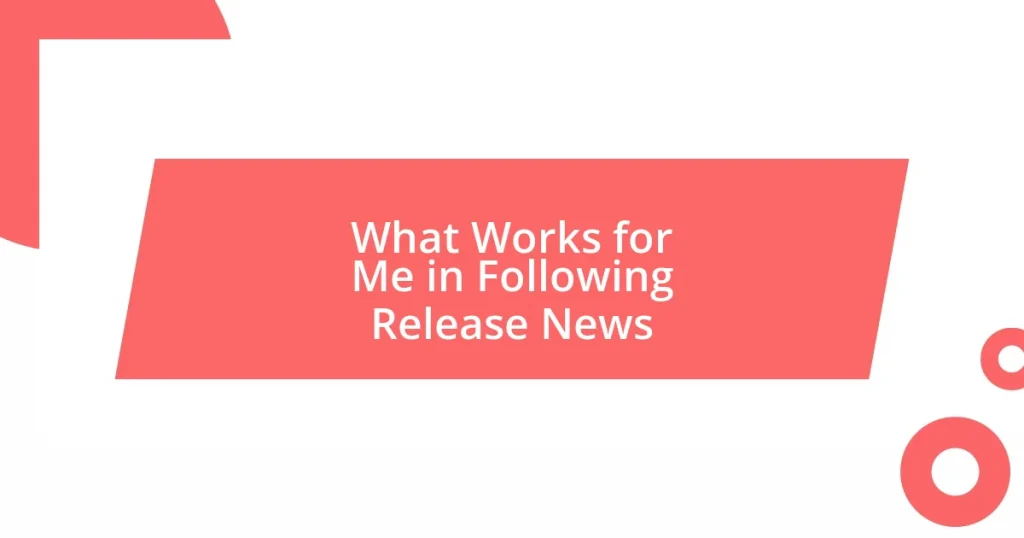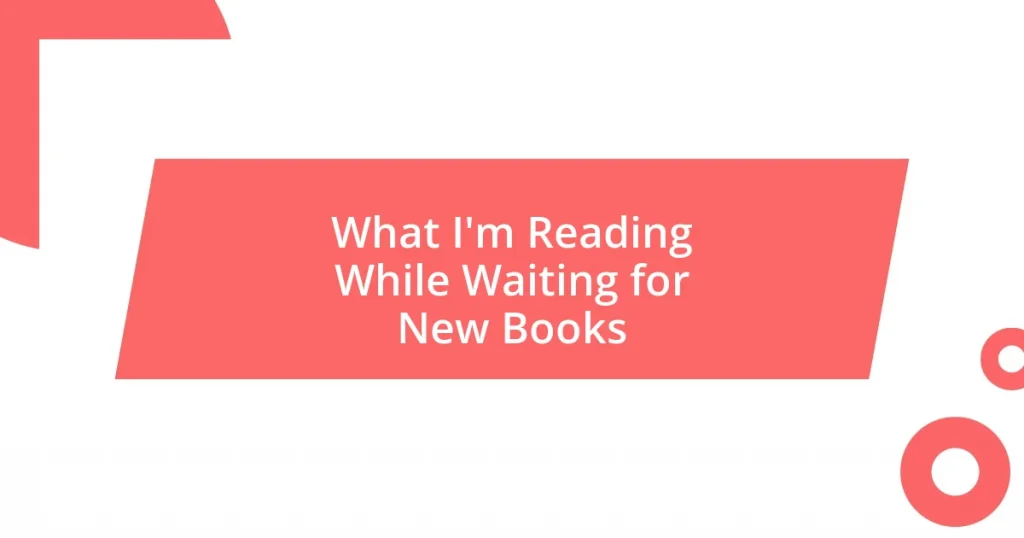Key takeaways:
- Game events foster excitement, emotional connection, and community engagement, transforming gameplay into memorable experiences.
- Preparation and collaboration with friends enhance participation in events, making them more enjoyable and meaningful.
- Networking, workshops, and reflective practices enrich the gaming journey and encourage personal growth and advocacy within the community.
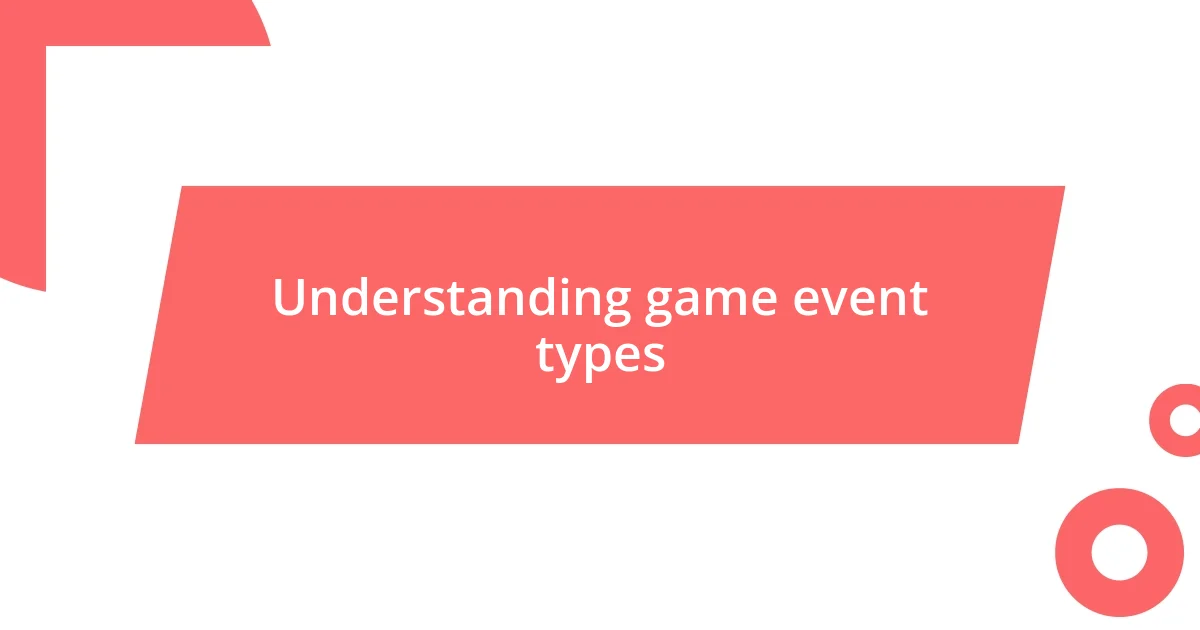
Understanding game event types
When I think about game event types, the first thing that comes to my mind is the sheer variety available. There are in-game events, seasonal events, and even community challenges. Each type brings its own flavor, and I recall feeling that rush of excitement during a limited-time event where players band together for a common goal. Isn’t it thrilling to unite with others for something bigger?
Moreover, I’ve noticed that in-game events often serve as key milestones in a game’s narrative. For instance, when a game I love introduced a surprise boss event, it not only challenged my skills but also deepened my connection to the story. Have you ever felt that a game’s event made you emotionally invested, as if you were part of something larger? For me, those moments turned gameplay into a compelling experience that stayed with me long after I logged off.
Community events, on the other hand, foster a sense of belonging that’s hard to replicate elsewhere. I remember participating in a charity fundraiser within a game community; it was remarkable to see how a shared passion could unite so many people for a meaningful cause. Aren’t those types of experiences what truly elevate gaming—it’s not just about playing; it’s about connecting with others in unique and transformative ways.
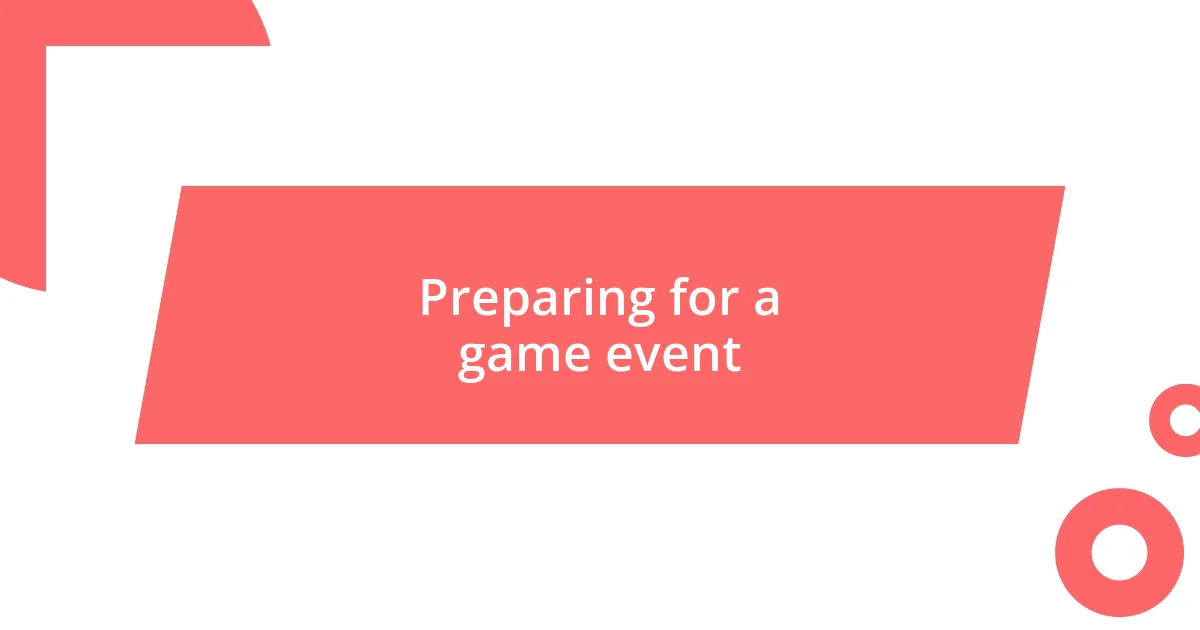
Preparing for a game event
Preparing for a game event requires careful thought and consideration. I like to start by assessing the details of the event – when it’s happening, what the objectives are, and how it fits into the game’s overall narrative. For instance, I once marked my calendar for an epic crossover event, knowing it would unlock exclusive items. The thrill of anticipation made the event feel like an unmissable celebration.
To fully immerse myself, I also make sure I’m up-to-date on any potential strategies or character builds that may enhance my chances of success. When I first participated in a large-scale raid, I spent hours watching tutorials and reading guides from experienced players. This preparation not only boosted my confidence but also fostered a sense of community as I learned from others’ experiences.
Lastly, I find it essential to gather a solid team of friends or fellow players to tackle the event with. We would often set up group chats filled with strategies, jokes, and excitement. Just last month, my friends and I worked together during a high-stakes tournament, making memories that went beyond just winning. I cherish those moments, as they remind me why I love engaging in game events—the shared experiences and laughter can transform a simple gaming session into something truly special.
| Preparation Step | Description |
|---|---|
| Event Details | Understand the timing, objectives, and story integration. |
| Strategy Research | Look for guides and tips to optimize gameplay. |
| Team Coordination | Gather friends to enhance the experience and create memories. |
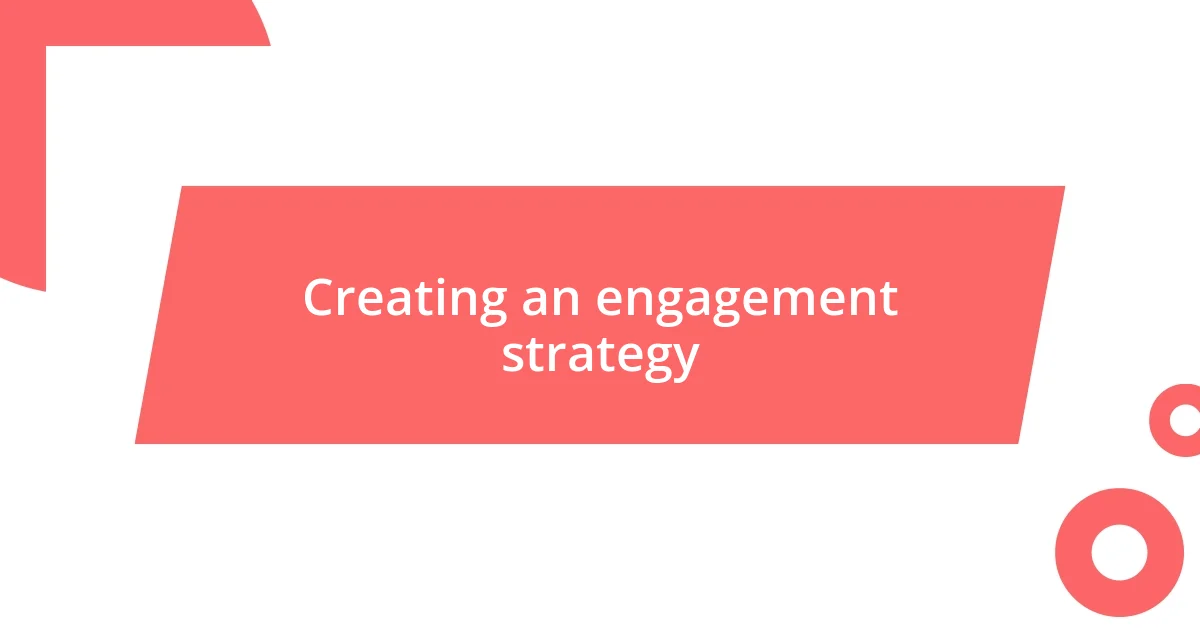
Creating an engagement strategy
Creating an engagement strategy requires not just planning but also a genuine connection to the gaming community. When I reflect on my approach, I realize the importance of setting clear goals and understanding what I want to achieve. For example, during a recent event, I aimed to improve my leaderboard ranking while also forging new friendships in the game. This dual objective fueled my enthusiasm, allowing me to enjoy the event on multiple levels.
- Identify Objectives: Define what success means for you—whether it’s mastering a skill or building a community.
- Leverage Social Media: Engage with fellow gamers on platforms like Discord or Twitter; I often share strategies and experiences, which enriches my overall gaming experience.
- Utilize Incentives: Incentivizing participation can make a huge difference. During a scavenger hunt event, I crafted unique rewards for my friends to keep everyone motivated and excited.
Aligning these elements helps create a richer experience, turning a simple game event into an engaging journey. Just last month, I found myself collaborating with a group dynamically; as we strategized and laughed through challenges, it reminded me that every event is a chance to build not just skills but friendships. And really, isn’t that what gaming is all about?
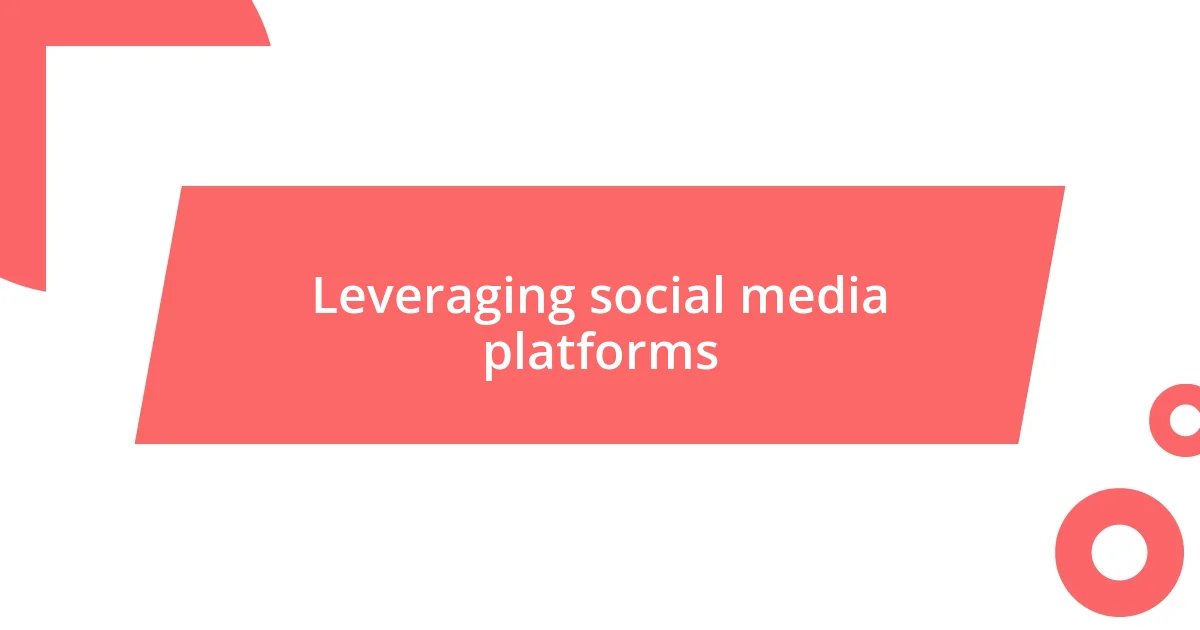
Leveraging social media platforms
Engaging on social media platforms has become an essential part of my experience with game events. I vividly remember last year’s annual gaming convention when I connected with players from around the world on Twitter. Through shared posts and hashtag discussions, I discovered new tactics that not only enhanced my gameplay but also sparked friendships, proving once again how social media can create a sense of camaraderie among gamers.
In my experience, platforms like Discord have been game-changers for real-time communication during events. It’s incredible how quickly I can jump into voice channels to strategize with my teammates or celebrate victories. During one intense game night, we used Discord to coordinate our moves seamlessly, amplifying our performance while building a bond that extended well beyond the screen. Have you ever felt that rush of excitement when chat notifications go off with every win? It’s that instant connection that fuels my passion for gaming.
Moreover, I find leveraging social media to share my journey through live streams or posts incredibly rewarding. During a recent gaming event, I shared not just strategies but also the emotional high of overcoming challenges. It encouraged others to share their stories too, transforming a solo experience into a collective celebration. This not only showcases the community aspect but also reminds me of the reasons I engage with these events: the sheer joy of sharing and connecting with others who have the same passion. Can you recall a moment when social media took your gaming experience to the next level? Those moments are precisely what we cherish.
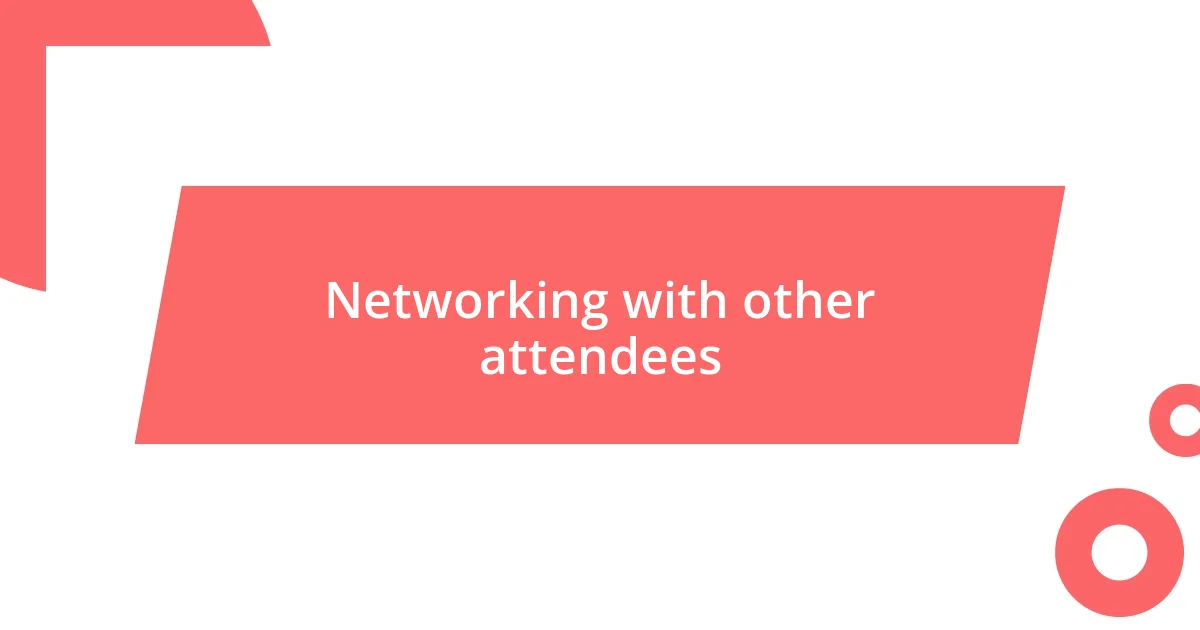
Networking with other attendees
One of the highlights for me at game events is the opportunity to meet other attendees. I still remember the sense of excitement I felt when I struck up a conversation with someone standing in line for a panel. We shared our favorite games and strategies, and that simple exchange turned into a lasting friendship. Isn’t it fascinating how a shared interest can spark such meaningful connections?
I often find myself gravitating towards the community chill zones set up at these events. Just last month, I joined a casual gathering where we played some indie games together, and between rounds, I learned about different gaming cultures and experiences. It was refreshing to see a diverse group come together, all united by our love for gaming. Have you ever been surprised by the warmth of a community you didn’t expect?
Networking is not just about exchanging names or social media handles; it’s about building relationships. I’ve made it a point to follow up with attendees after events, checking in to see how their gaming pursuits are going. This has deepened my connections and often leads to collaborative projects or game nights. It’s incredible how those follow-ups transform fleeting encounters into supportive friendships that enhance our gaming journeys. Don’t you think building a network is one of the most rewarding aspects of attending these events?
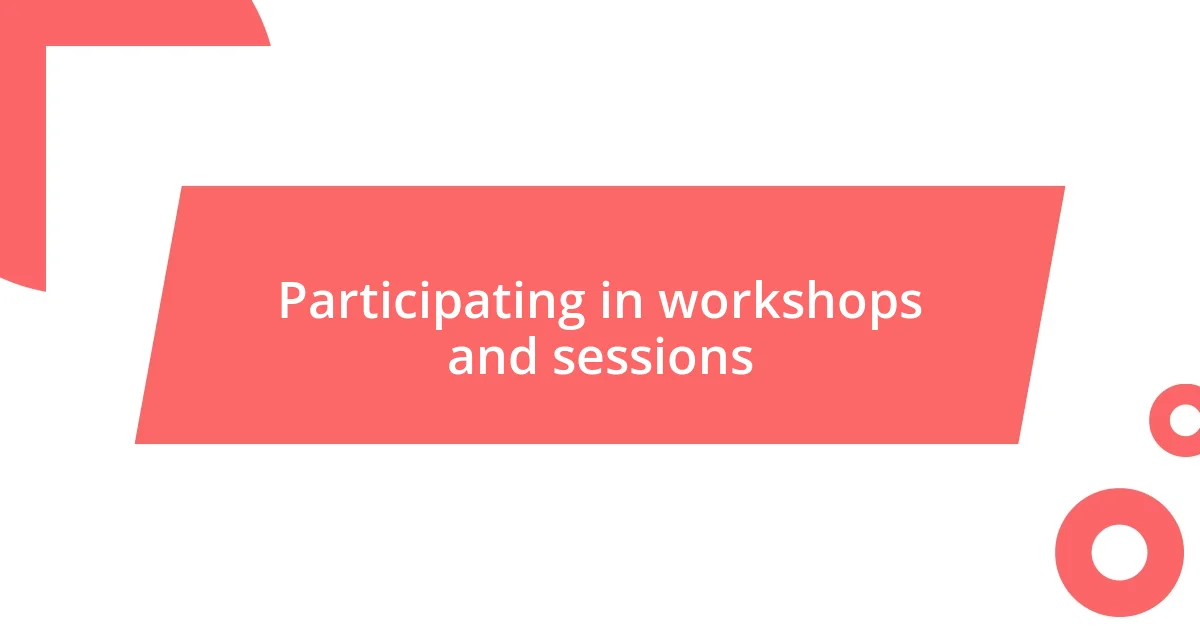
Participating in workshops and sessions
Participating in workshops and sessions at game events brings a whole new level of interaction for me. I remember attending a hands-on game design workshop last year where I got to collaborate with industry professionals and fellow enthusiasts. The energy in the room was electric as we shared ideas and tackled challenges together. Have you ever felt that spark when you’re surrounded by people who share your passion? It’s motivational in ways that stick with you long after the session ends.
During one particular workshop, we dived deep into the mechanics of narrative design, which has always fascinated me. The facilitator encouraged us to create short storylines for in-game characters, and I found myself fully immersed in the process. It was an eye-opening experience where I could see how storytelling influences gameplay. By the end of the session, I felt inspired to experiment with my own game narratives. Isn’t it amazing how a single workshop can ignite creativity and shift your perspective?
Moreover, I find that participating in these sessions often leads to unexpected collaborations. After a workshop on game marketing, I connected with another participant who was equally passionate about indie games. We ended up brainstorming ideas for a joint project, which has since blossomed into a fun venture we both enjoy. That collaboration not only strengthened our skills but also enriched my experience in the gaming community. Have you ever walked away from a workshop feeling like you’ve gained more than just knowledge? Those moments are precious, aren’t they?
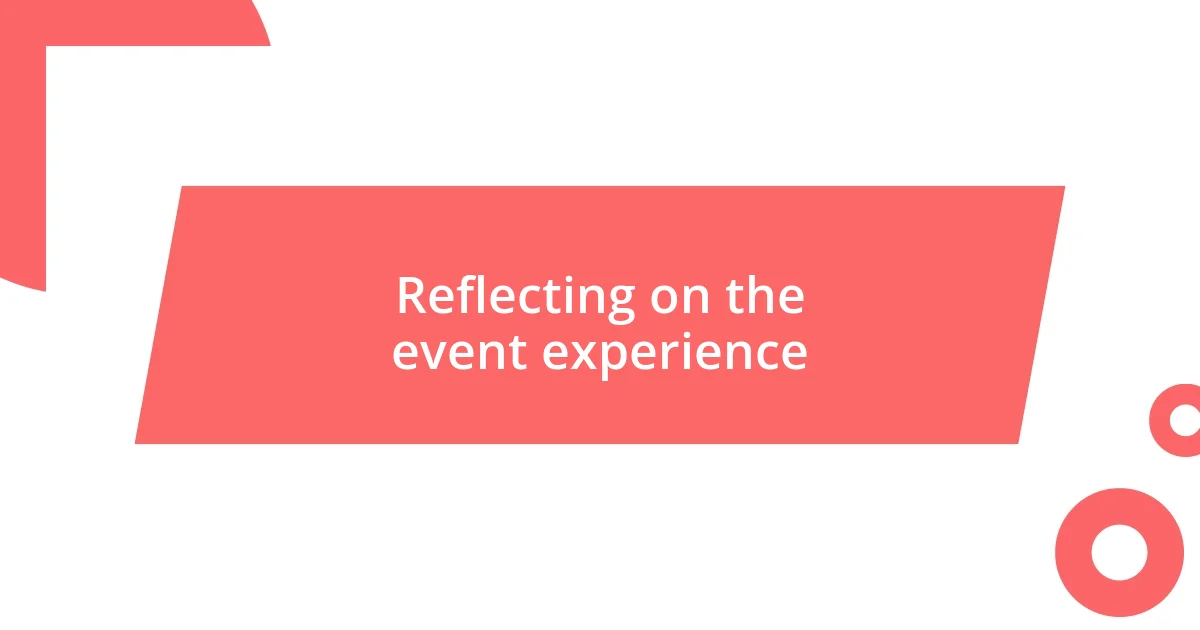
Reflecting on the event experience
Reflecting on the event experience is something I cherish deeply. After each game event, I find myself mulling over the moments that stood out. For instance, I vividly recall the thrill I felt during a surprise reveal of an upcoming title. The collective gasp of excitement from the crowd was electric; it created this sense of shared anticipation that lingered long after the moment passed. Have you ever experienced such a rush, where the energy in the room felt almost tangible?
In my reflections, I often consider how certain interactions left a mark on me. One particular conversation with a game developer really struck a chord. We discussed the struggles of indie developers, and I could feel the passion and vulnerability in their voice. It made me realize just how much goes into creating the games we love, and it heightens my appreciation for their work. From that moment, I made it a personal goal to support indie creators more actively. Isn’t it profound how a single encounter can shift your perspective and inspire you to take action?
Moreover, I’ve noticed that reflecting on these experiences helps solidify the lessons learned. At one event, I attended a panel on diversity in gaming. Listening to diverse voices share their stories was incredibly enlightening, and it urged me to think critically about inclusivity in the industry. Those reflections aren’t just fleeting thoughts; they encourage me to advocate for change within my own gaming circle. Have you found that reflecting on your experiences pushes you to grow and think differently? It’s like a continuous cycle of improvement, fueled by our shared adventures.
